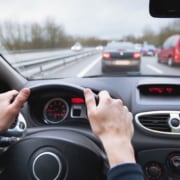Ways You Can Be Charged with A DUI Without Driving a Car
Driving under the influence (DUI) is a serious offense that typically involves operating a vehicle while impaired by alcohol or drugs. In relation to this, in Auburn, AL, there are unique scenarios where individuals can be charged with a DUI without actually being behind the wheel.
DUI on Private Property
In Auburn, the DUI law extends beyond public roads to include private property. If an individual operates a vehicle while under the influence on private property, such as a parking lot or driveway, they may still be charged with a DUI. Law enforcement can intervene if the person poses a risk to themselves or others, highlighting the broad scope of DUI enforcement.
DUI in a Parked Car
Being inside a parked car can lead to DUI charges in Auburn. If an individual is found in the driver’s seat with the keys in the ignition and shows signs of impairment, law enforcement may consider them in control of the vehicle, even if it isn’t in motion. This interpretation expands the definition of “driving” in DUI cases.
DUI on a Bicycle
Alabama DUI laws are not limited to motor vehicles. Riding a bicycle under the influence can also result in DUI charges. Although a bicycle is not a motorized vehicle, the state’s laws may still apply if the person is impaired and poses a danger to themselves or others on the road.
DUI in a Non-Motorized Vehicle
In some cases, individuals using non-motorized vehicles, such as scooters or skateboards, may be charged with a DUI. The key factor is impairment and the potential danger posed to oneself or others, regardless of the mode of transportation.
DUI with an Engine Running
Merely sitting in a stationary vehicle with the engine running can lead to DUI charges in Auburn. If law enforcement determines that an individual had the intent to drive while under the influence, they may be charged even if the vehicle didn’t move.
DUI with Prescription Medications
Alabama DUI laws encompass not only alcohol and illegal drugs but also prescription medications that impair one’s ability to drive safely. If law enforcement believes that an individual’s prescription medication has impaired their driving ability, they may face DUI charges.
What Does the Alabama Law Say on DUI Without Driving?
In Alabama, the DUI laws are primarily outlined in the Code of Alabama, specifically Title 32, Chapter 5A, Article 2. Here are some relevant sections pertaining to DUI without driving:
- DUI on Private Property: Section 32-5A-191(b): This section defines driving under the influence and may encompass operation on both public roads and private property.
- DUI in a Parked Car: Section 32-5A-191(a)(2): This part of the law may address situations where an individual is in “actual physical control” of a vehicle while under the influence, even if the vehicle is not in motion.
- DUI on a Bicycle or Non-Motorized Vehicle: Section 32-5A-191(a)(1): Alabama law may consider operating any vehicle, including non-motorized ones like bicycles, under the influence as a DUI offense.
- DUI with an Engine Running: The interpretation of “actual physical control” in Section 32-5A-191(a)(2) may cover situations where a person is found in a stationary vehicle with the engine running and shows signs of impairment.
- DUI with Prescription Medications: The Alabama DUI statute does not specifically mention prescription medications, but Section 32-5A-191(a) broadly covers being under the influence of any substance that impairs a person’s ability to drive.
Legal interpretations and precedents may impact the application of these laws, so seeking advice from an Auburn DUI lawyer is recommended for specific cases.
Potential Defenses an Auburn, AL DUI Attorney can Use When You are Charged with a DUI without Driving
When you are charged with a DUI in Auburn, Alabama, even if it’s a case without actual driving, a skilled Auburn DUI attorney can employ various defenses to challenge the prosecution’s case.
Lack of Probable Cause
Challenge the basis for the traffic stop or initial contact with law enforcement. If there was no reasonable suspicion or probable cause to stop you, any evidence obtained thereafter may be inadmissible.
Improper Field Sobriety Tests
Question the administration and interpretation of field sobriety tests. These tests are subjective, and factors such as medical conditions or nervousness can affect performance. An attorney may argue that the results are unreliable.
Inaccurate Breathalyzer Results
Challenge the accuracy of breathalyzer results by examining the maintenance records and calibration of the testing equipment. Issues with calibration or proper usage could render the breath test results unreliable.
Rising Blood Alcohol Content (BAC) Defense
Argue that your BAC was below the legal limit at the time of driving but had risen to an illegal level by the time of testing. This defense challenges the timing of the chemical test and the notion that BAC levels are always decreasing.
Medical Conditions or Medications
If you have a medical condition or are taking prescription medications, your attorney may present evidence that these factors, rather than alcohol or drugs, caused the observed impairment.
Challenging Officer’s Observations
Question the arresting officer’s observations of your behavior, appearance, and performance on field sobriety tests. Factors such as fatigue, nervousness, or other non-alcohol-related issues could explain perceived impairment.
Violation of Miranda Rights
If law enforcement failed to inform you of your Miranda rights during the arrest, statements made during custodial interrogation might be inadmissible in court.
Illegal Search and Seizure
Challenge any searches conducted without a proper warrant or probable cause. If evidence was obtained through an illegal search, it may be excluded from court proceedings.
Witness Credibility
Question the credibility of witnesses, including law enforcement officers. Discrepancies in their statements or inconsistencies in their testimony could be used to cast doubt on the prosecution’s case.
Demonstrate Lack of Actual Physical Control
In cases where you were found inside a parked car, argue that you did not have actual physical control over the vehicle, and there was no intention or likelihood of driving.
Challenge Chain of Custody
If blood or urine samples were taken, challenge the chain of custody to ensure that the samples were properly handled and stored, preventing contamination or tampering.
Reputable Auburn, AL DUI Lawyers are Ready to Defend You
Alabama’s DUI laws are broad, encompassing a range of situations where impairment poses a risk. Individuals should be aware of various scenarios and take precautions to avoid legal consequences when they are charged with a DUI. At Alsobrook Law Group, our DUI attorneys in Auburn, AL will build a strong defense to help you achieve the best possible outcome. Call us at 334-737-3718 or get in touch with us online to schedule your free consultation.
Check out our Google Reviews here!















